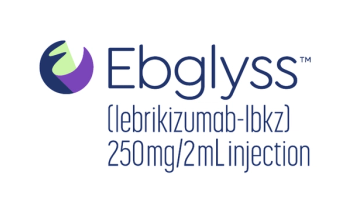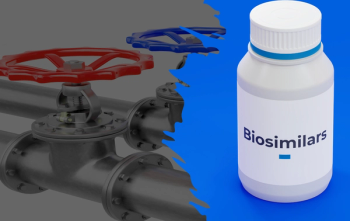
A Conversation with Alan Lotvin, M.D. | Part 3
The president of CVS Caremark discusses specialty pharmacy, competition for the specialty patient and Humira biosimilars hitting the market next year.
Third of three parts
Editor’s note: We interviewed Lotvin several weeks ago, before the Federal Trade Commission announced its study of the PBM industry and before a whistleblower lawsuit was filed against the company An excerpt of the transcript of that interview ran in our
Let's change the subject to specialty drugs. Of course, what specialty drug means is in the eye of the beholder. But let's accept for the purposes of this discussion that more than 50% of your trend is a specialty drug. Is there a commercial fight over the specialty patient and are your services a Trojan horse for the PBM getting into the care delivery business?
So PBMs have been in the care delivery. If you define pharmacy as the care delivery business, then we've been doing it forever.
For specialty drugs, there are several things to think about.
So one is, how do you create the best experience for the patient? We have a number of programs, products, services, that really create a better experience for patients.
If you're getting a specialty drug, and it's a temperature sensitive product, and you're going to get it delivered to your home, that may work for you, but it may not. You may not have an easy place for it to stay, you may worry about the physical security, you may worry about the temperature security if you can't get home.
Being able to pick it up at one of our stores. that's a huge. When we implemented Specialty Connect, 50% of the people who were getting stuff sent to them at home decided to pick it up in our stores. That's an example of customer service.
The second part is 93% of our customers in Specialty Connect connect with us digitally. That's a huge opportunity to do two very simple things.
The first thing we do is we say to them, how much drug do you have left on hand? Rather than just say, “OK, we talked to you, you told me you needed drug. So I'm going to start shipping it on the 25th so you get it by the 1st. How much drug do you need? Oh, you don't really need it til the 4th. So instead of shipping on the 25th, we're going to ship it on the 28th.
Now, most people are not 100% compliant, as much as we try. If someone doesn't take their drug one day a week, three weeks out of a month, they're getting all the clinical benefit. That's what the medical experts say. But now, if I can ask them, “Do you need more drug?” I can ship one less prescription a year. That's an 8% savings.
Now remember, we make money when we ship drugs, but we don't want to ship drugs that just sit in people's refrigerators. So that's the second thing we can do.
The third thing when you can talk to them, you can say, “How are you doing?” So if we're going to spend $7,000 on anti-TNF inhibitors, I'd love to know that they're walking as much as they used to walk and if feel well. And if they're not (feeling well), let's try to think about a different product, and, especially as we get into the world of biosimilars, a more cost-effective product.
So it's that connection with people.
So is there a fight over specialty? Yeah. Who's in that fight?
If it's for the open market, Medicare patient, it's everybody. Everyone wants those patients and whoever provides the best service to the doctors and the patients, there's going to get them because you have to meet the price.
In the cancer world, there's a real fight between the oncologists who want to dispense themselves and everyone else. And we can debate that.
And then in the self-insured employer space, should those be exclusive or not.
And what I would generally say is, we're going to bring the best price to market and the best price we can offer because we have all the volume… clients often ask for the ability to carve out specialty dispensing. They rarely do it. Because at the end of the day, the same patients who are taking specialty meds are taking pills, tablets and capsules. So a better member experiences is to have a consistent approach.
It’s a very active space. And then, as we sit here in 2022, with $100 billion of specialty product going to lose marketing exclusivity…
If there's one thing everyone has to agree (to is) that PBMs have been good at driving generic dispensing rates. Generic dispensing rates in 2005 were 45%. They are 90% now. A lot of that is the influence of the PBMs.
So I think we're going to be able to do the same thing — obviously not to 90% — in the specialty space, which will lower out-of-pocket costs for members, improve affordability for payers, lower the total cost.
The only people who don't like biosimilars are the pharmaceutical manufacturers, who have pulled every trick in the book to make it harder to prescribe (biosimilars) and harder to dispense, and harder to approve.
But with a lot of concerted action, I think we're making progress there.
So are you doing anything special with respect to Humira and 2023, which is supposed to be this kind of inflection point. Do you have a Humira biosimilar game plan? Do you have a contract with Amgen, which is supposed to be the first out of the out of the gate with its biosimilar?
So all good questions and all commercially sensitive ones.
We absolutely have a game plan.
It's not just the first out of the gate. In the case of Humira, in particular, it is concentration, it is formulation. So we have a lot of those things that we're working through.
Newsletter
Get the latest industry news, event updates, and more from Managed healthcare Executive.























